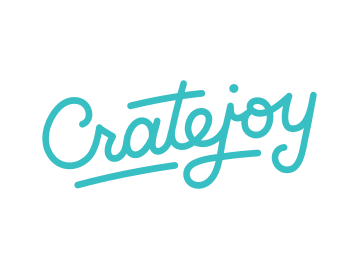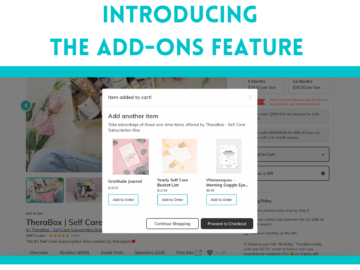Just how much can a subscription product company be worth? Try $1 billion. Although exact financials were not disclosed, the New York Times and other news outlets report that Unilever acquired the razor upstart Dollar Shave Club for roughly $1 billion cash.
Founded in 2011, Dollar Shave Club was one of the early innovators in subscription ecommerce. They took a common consumer product, the men’s razor, and quickly built a well-known brand using viral videos, competitive pricing, and convenient delivery.
What Dollar Shave Club Got Right
Dollar Shave Club set a great example for other entrepreneurs entering the subscription commerce space. At Cratejoy, we’ve found our most successful sellers share these traits with Dollar Shave Club:
They…
- Focus on a niche market
- Leverage a competitive advantage
- Take an interesting or unique marketing approach
- Build strong customer loyalty (low churn)
Niche Market
Although the men’s razor market is not especially niche (it’s a $3 billion industry), Dollar Shave Club opened a new market for people willing to purchase razors online as a monthly subscription. Once they proved the business model, other companies like Harry’s and Bevel jumped in, focusing on more specific niches in that market.
Competitive Advantage
Dollar Shave Club had a number of competitive advantages over traditional retail razor companies:
- Price: Dollar Shave Club eschewed the traditionally high margins on razors and delivered them at a competitive price. By delivering their razors by mail, the company also avoided the markup costs of traditional brick and mortar retailers.
- Convenience: Traditional retailers sometimes keep expensive razor cartridges locked up or behind a counter because of theft, which created additional friction in the purchase experience. Getting them by mail is incredibly convenient.
- Personality: Michael Dubin leveraged his background in comedy and improv to create hilarious viral videos about their product. This laid the foundation for product inserts and reading material that continued to build a customer connection and loyalty.
Interesting and Unique Marketing Approach
(Look, we’re even sharing their commercial here!)
Strong Customer Loyalty
By selling their product as a subscription, Dollar Shave Club was able to grow their revenue month over month and sell their product on a predictable basis. They made it easy for customers to stay loyal by shipping it to their door each month. But the additional product samples and shipping inserts is what really helped them establish their brand and built a great long-term relationship with customers.
Dubin himself refers to the business model as “membership” rather than subscription, further proving the company’s dedication to building unparalleled customer loyalty.
What This Means for the Subscription Product Industry
Incumbent brands and retailers have started getting serious about product subscription commerce. Amazon, Walmart, and Target are now offering subscriptions for many household essentials, and established brands like Starbucks, Kellogg and Adidas have started exploring the subscription business model. Unilever’s $1 billion purchase of Dollar Shave Club continues this trend and will potentially help Unilever to build out other subscription businesses of its own.
With large brands and retailers entering the subscription space, competition is heating up even more for commodity subscription products like coffee, socks, and soap. However, the acquisition of Dollar Shave Club also shows that other subscription businesses that can establish a strong brand and customer base might eventually exit to join larger consumer conglomerates.
For new subscription product companies that are looking to grow fast, the example of Dollar Shave Club might help attract investor funding. But for most existing subscription business, it is just further validation of a great business model.
Cratejoy is an all in one subscription commerce platform that includes everything you need to start your own subscription commerce business online. Try it free for 14 days.




